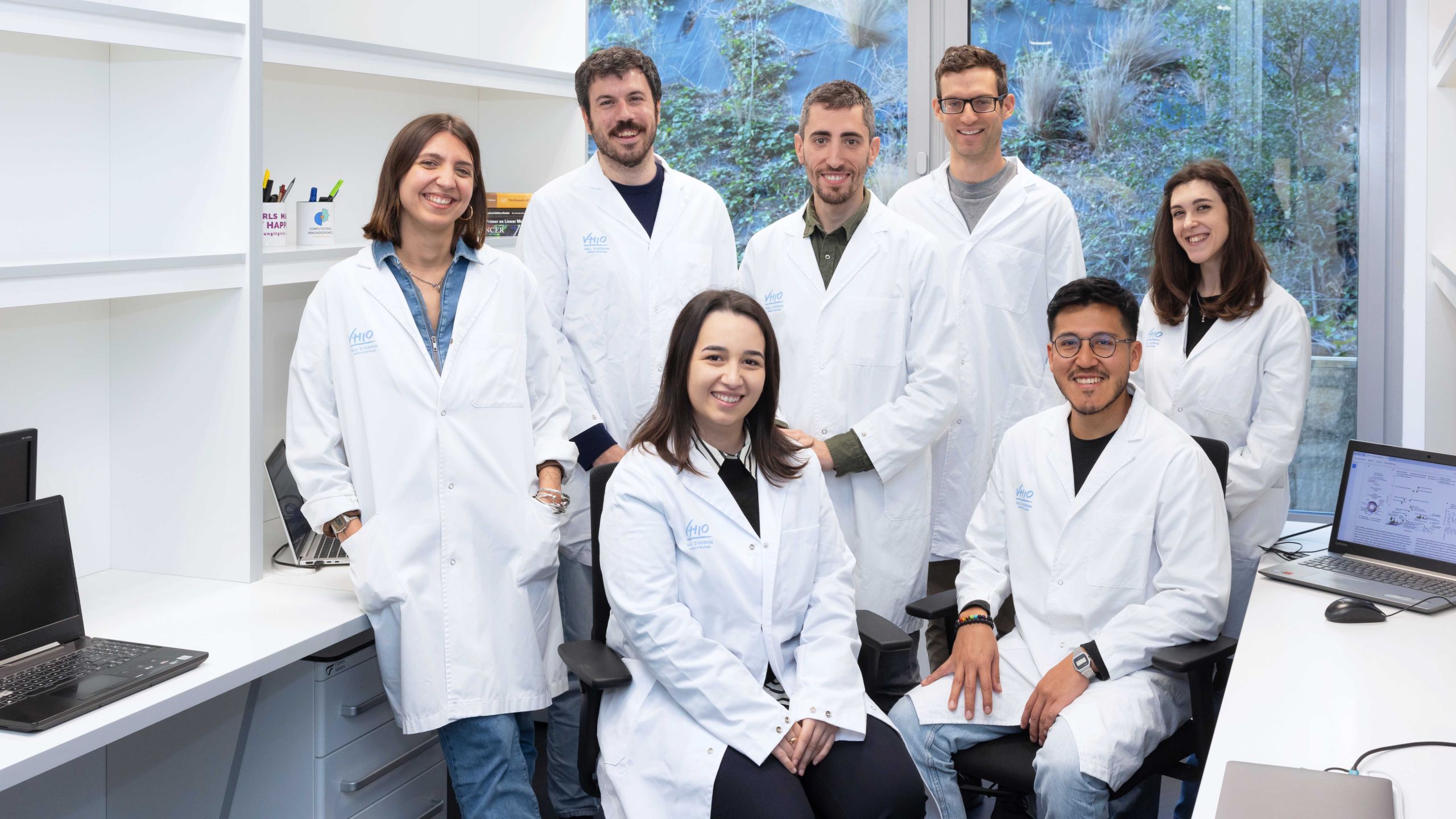
Introduction
The cancer immunogenomics lab focuses on understanding the genomic basis of tumorigenesis and its interplay with the immune system. Our approach relies on performing large-scale tumor genomic analyses matched with a comprehensive profiling of the tumor’s immune microenvironment to better understand the tumor immune system interaction. Our final goal is to leverage this knowledge to improve the clinical development of tailored immunotherapies.
Cancer is characterized by an uncontrolled growth of cells that are not cleared by the immune system. Every tumor has a unique composition of genomic alterations acquired over the evolution of the tumorigenic clone. While tumors often harbor hundreds to thousands of genomic alterations, only a handful of these alterations are responsible for the tumorigenic process (the so-called drivers). Driver alterations tend to be cancer-type specific (F. Martínez-Jiménez et al. Nature Reviews Cancer, 2020) and are generally conserved between primary and metastatic lesions (F. Martínez-Jiménez et al. biorXiv 2022).
Nevertheless, it is becoming increasingly clear that tumor genomic alterations are not the unique contributing factor for tumor development and metastasis and that other factors, such as the escape from the immune system recognition, also play a critical role. In this context, we are interested in developing computational models to i) further understand the interplay between tumor evolution and the immune system and ii) harness this knowledge to improve the clinical development of tailored immunotherapies.
Our approach relies on integrating the genomic portrait of tumors (based on whole-exome/genome sequencing), which includes identification of simple and complex tumor specific alterations, rationalized prioritization of the tumor neoantigens, and characterization of the tumor HLA-I status and other immune escape alterations; combined with a quantitative portrayal of tumor immune’s microenvironment (using both bulk transcriptomics/proteomics immune deconvolution, single cell and geospatial immune profiling, and TCR-sequencing). As an example of this approach, we have recently performed a large-scale analysis of the prevalence and impact of genetic immune escape alterations across >6,000 primary and metastatic tumors (F. Martinez-Jiménez, Peter Priestley et al. biorXiv 2022).
Thanks to our close collaboration with the Hartwig Medical Foundation we have access to one of the largest resources of whole genome sequenced tumors and full tumor transcriptomes (currently >6,000 patients, https://database.hartwigmedicalfoundation.nl/). Moreover, in-house data will be generated to assist in the validation of our analyses and to address specific questions that require more targeted analysis.
- Study the immune-oncogenicity trade-off of cancer mutations.
- Identify and assess non-canonical sources of cancer neoantigens.
- Explore the TCR-repertoire landscape of human tumors.
- Co-lead cancer genomics projects in collaboration with the Hartwig Medical Foundation:
- Generate novel biological and clinical insights based on tissue biopsy and circulating tumor DNA (ctDNA) analysis.
- Identify new clinical biomarkers for non-responders to cancer therapies.
- Demonstrate the clinical added value of WGS as part of routine care.
- Martínez-Jiménez F*, Movasati A, Brunner SR, et al. Pan-cancer whole-genome comparison of primary and metastatic solid tumours. Nature. 2023;618(7964):333-341. doi:10.1038/s41586-023-06054-z.
- Martínez-Jiménez F*^, Priestley P*, Shale C, Baber J, Rozemuller E, Cuppen E. Genetic immune escape landscape in primary and metastatic cancer. Nat Genet. 2023;55(5):820-831. doi:10.1038/s41588-023-01367-1.
- Esteban I, Pastor-Quiñones C, Usero L, Aurrecoechea E, Franceschini L, Esprit A, Gelpí JL, Martínez-Jiménez F, López-Bigas N, Breckpot K, et al. Assessment of Human SARS CoV-2-Specific T-Cell Responses Elicited In Vitro by New Computationally Designed mRNA Immunogens (COVARNA). Vaccines. 2024; 12(1):15. https://doi.org/10.3390/vaccines1201001
Project: Systematic characterization of distinctive immunogenomic traits of Cancers of Unknown Primary (CUPs) to identify novel therapeutic opportunities.
Referencia: Lab AECC 2024. LABAE246817MART
Asociación Española Contra el Cáncer
Periodo concesión: 11/2024-11/2027
Role: Principal Investigator
Project: Small cell lung cancer: from biology networks to tailored therapy (July 2024-2029). Spanish Association for Cancer Research (AECC). AECC 70 Survivorship 2024 Challenge.
Referencia: AECC 70 Survivorship 2024 Challenge.
Asociación Española Contra el Cáncer
Periodo concesión: 07/2024-07/2029
Role: Work-package leader
Project: Computational immunogenomics
Referencia: Ramon y Cajal program. SRYC2200I037005XV0
Ministerio de Ciencia e Innovacion
Periodo concesión: 01/2024-01/2028
Role: Principal Investigator
Project: Characterization of the impact of genetic immune escape alterations on responses to Immune Checkpoint Inhibitors across human cancers. XXIV
Referencia: XXIV Beca FERO, Fundación FERO
Periodo concesión: 10/2023-10/2025
Role: Principal investigator.









